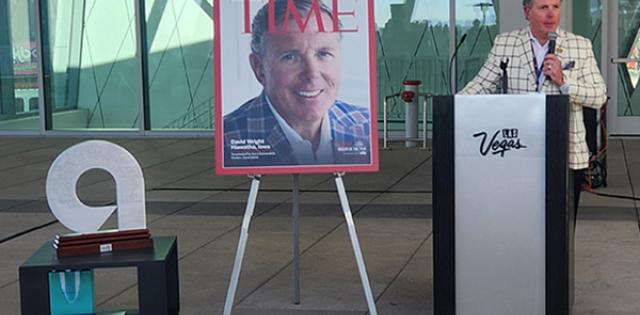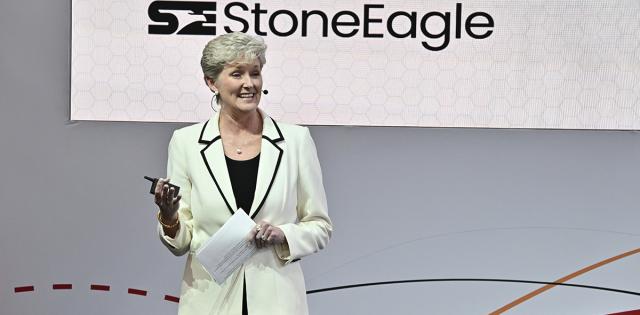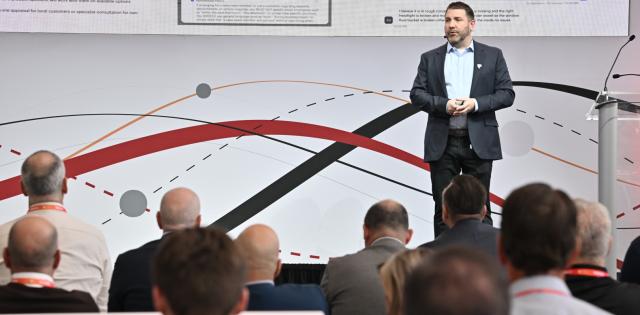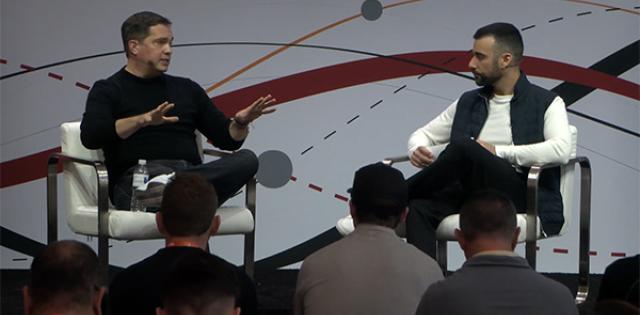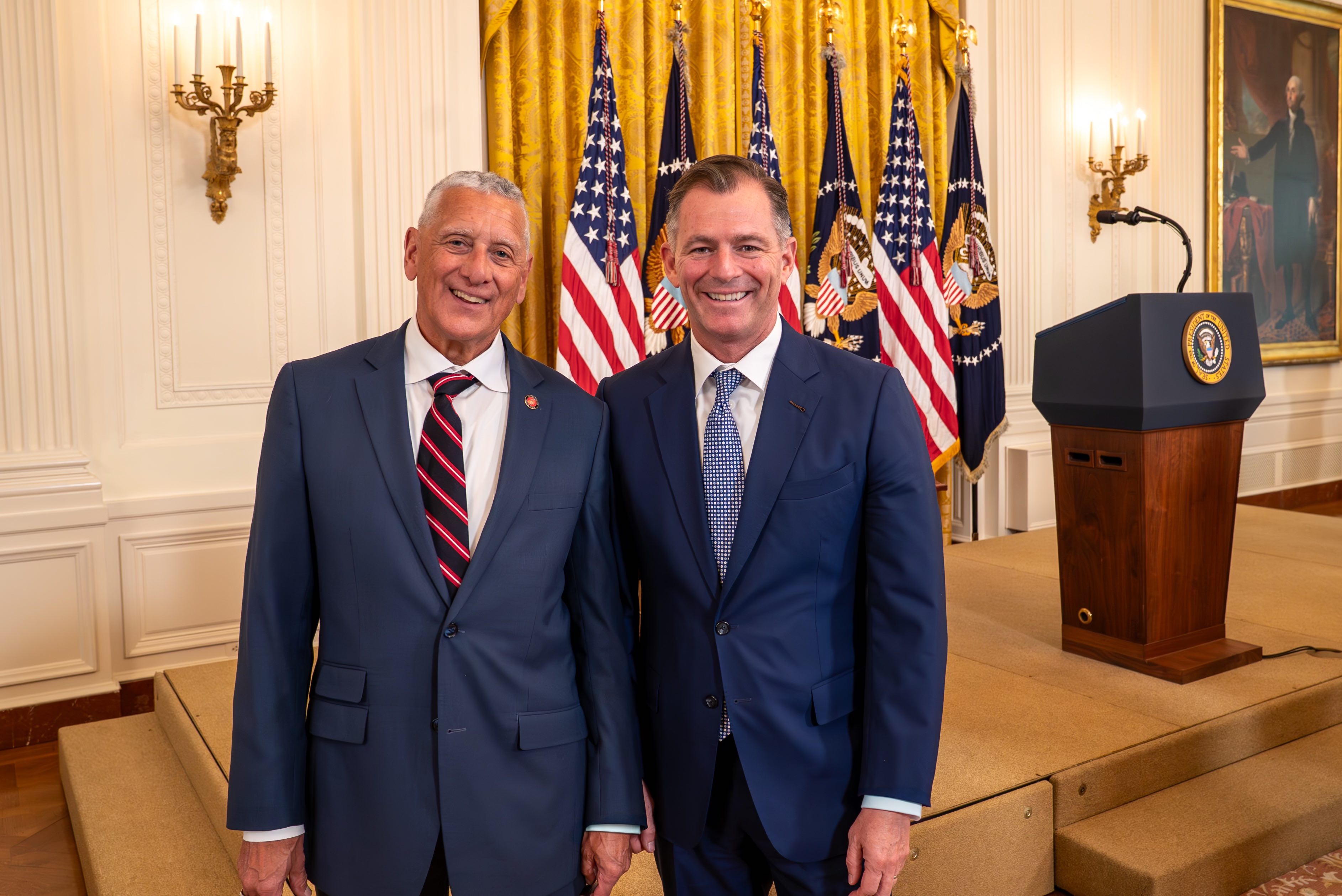
The California EV mandates that would have damaged the auto and truck market nationwide were struck down on Thursday when President Donald Trump signed three Congressional Review Act resolutions at an Oval Office ceremony.
“Consumers may not realize that a major crisis was averted today when President Trump signed these resolutions,” said Mike Stanton, CEO, NADA, who attended the ceremony with NADA Chairman Tom Castriota. “California’s ban of gas and hybrid cars and diesel trucks was completely out of alignment with consumer demand given the insufficient charging infrastructure and the high cost of electric vehicles (EV).”
The Congressional Review Act resolutions prevent California and the 11 other states that adopted California’s regulations from restricting and then banning traditional ICE engines. California was allowed to regulate emissions because the state got special permission to do so 55 years ago when it was trying to reduce smog in the LA basin. Later, Congress allowed other states to adopt California’s more aggressive regulations if they chose.
Under this regime, California officials set mandates requiring auto and truck manufacturers to sell an increasing percentage of zero-emissions vehicles (ZEVs) each year until 2035/2036 when new gas, hybrid and diesel vehicles would be banned.
The problem? There isn’t sufficient consumer demand to meet the increasing ZEV percentage requirements. So, manufacturers would be forced to artificially withhold gas-powered cars and diesel trucks from the market and that would drive up the cost of new cars and trucks nationwide.
Despite significant dealer investment in EVs, consumer demand for the vehicles has remained steady at around 8 percent of the total new vehicle market. For trucks, that percentage is even lower. That’s because EVs are expensive and there isn’t an adequate charging network to support them. Added to that, only homeowners can install a personal charger to plug-in to every night. That makes EV ownership extremely challenging for renters.
NADA and ATD aggressively pursued the passage of these three pieces of legislation. From the outset, we were not sure it could be done. However, after extensive outreach by NADA and ATD and remarkable engagement from our dealer members to their congressmen, we prevailed.
California’s Attorney General filed suit against the federal government soon after the resolutions were signed. NADA and ATD believe this challenge is unlikely to succeed and will defend the resolutions, which are now law.
“This victory is truly a cause for celebration. The standards put forth in these regulations were unachievable and would have increased prices at a time when vehicle affordability is low and purchasing a new car or truck is out-of-reach for many,” Stanton said. “Let’s take a moment to breathe a sigh of relief, but remain focused on our next steps to protect vehicle choice and affordability.”
NADA and ATD could not have done this without the help of our members, the ATAEs, and the congressmen who listened and voted on behalf of the American people. A special thanks to Senators Shelley Moore Capito (R-W.V.), John Thune (R-S.D.), John Barrasso (R-Wyo.), Deb Fischer (R-NE), Markwayne Mullin (R-OK) and Bernie Moreno (R-Ohio). On the House side, a special thanks to Speaker Mike Johnson and Representatives John James, (R-MI), John Joyce (R-PA), Jay Obernolte (R-Calif) and Brett Guthrie (R-KY).




